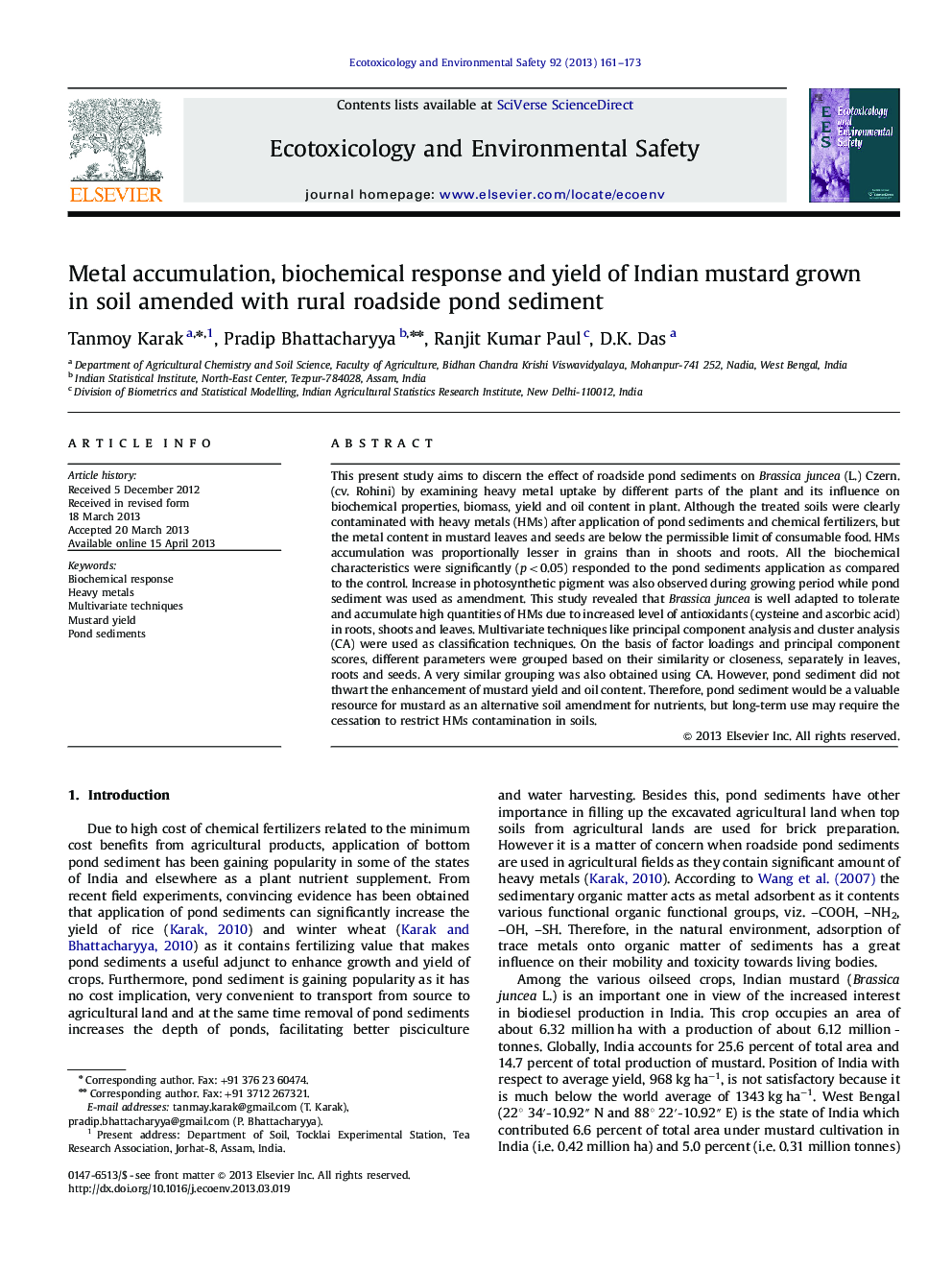| Article ID | Journal | Published Year | Pages | File Type |
|---|---|---|---|---|
| 4420448 | Ecotoxicology and Environmental Safety | 2013 | 13 Pages |
•We determined the effects of pond sediment on Indian mustard.•Biochemical characteristics of mustard significantly (p<0.05) responded to the pond sediments.•Heavy metals in the leaves and seeds were not significantly influenced by pond sediments.•Increase of grain yield through pond sediment application over control soil was 58.45 percent.•Oil content of the seeds was increased up to 17.55 percent with mixed amendments over control.
This present study aims to discern the effect of roadside pond sediments on Brassica juncea (L.) Czern. (cv. Rohini) by examining heavy metal uptake by different parts of the plant and its influence on biochemical properties, biomass, yield and oil content in plant. Although the treated soils were clearly contaminated with heavy metals (HMs) after application of pond sediments and chemical fertilizers, but the metal content in mustard leaves and seeds are below the permissible limit of consumable food. HMs accumulation was proportionally lesser in grains than in shoots and roots. All the biochemical characteristics were significantly (p<0.05) responded to the pond sediments application as compared to the control. Increase in photosynthetic pigment was also observed during growing period while pond sediment was used as amendment. This study revealed that Brassica juncea is well adapted to tolerate and accumulate high quantities of HMs due to increased level of antioxidants (cysteine and ascorbic acid) in roots, shoots and leaves. Multivariate techniques like principal component analysis and cluster analysis (CA) were used as classification techniques. On the basis of factor loadings and principal component scores, different parameters were grouped based on their similarity or closeness, separately in leaves, roots and seeds. A very similar grouping was also obtained using CA. However, pond sediment did not thwart the enhancement of mustard yield and oil content. Therefore, pond sediment would be a valuable resource for mustard as an alternative soil amendment for nutrients, but long-term use may require the cessation to restrict HMs contamination in soils.
